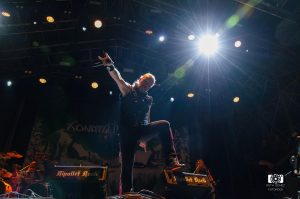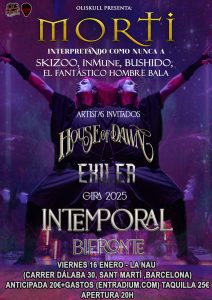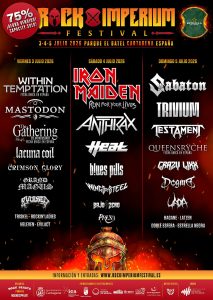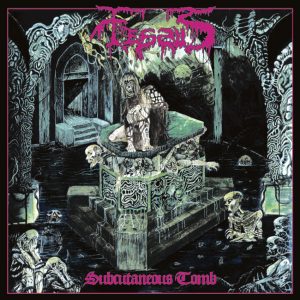VÖLVA: Where Fury Meets Flesh: A Sonic Reckoning
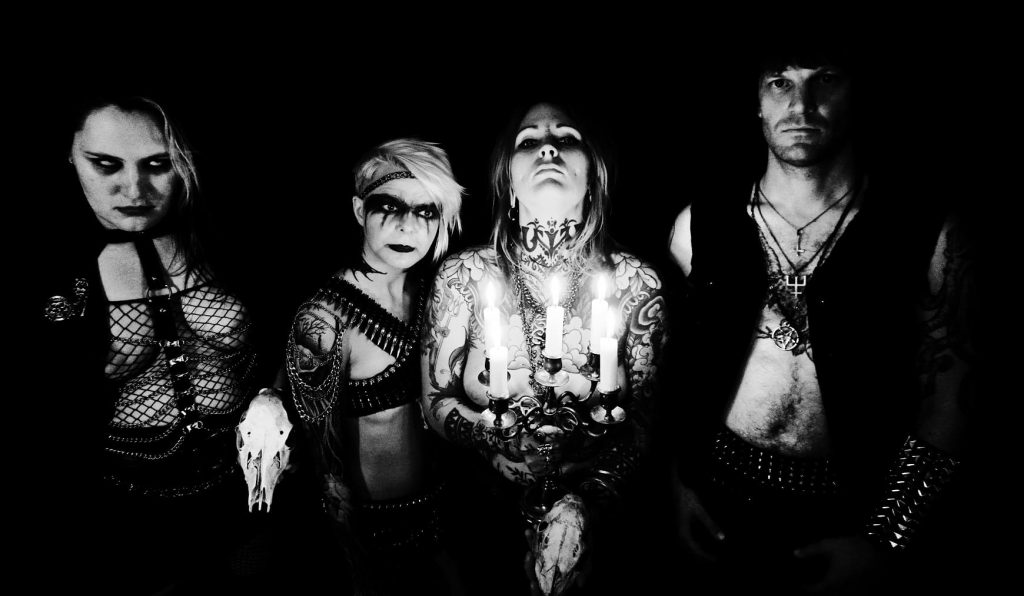
In an age where rebellion often feels commodified, the primal and unapologetic force of black metal remains a bastion for raw expression. Enter Völva, a Swedish band wielding their forthcoming debut album, Desires Profane, as both weapon and mirror—reflecting the anguish and ferocity of modern existence. With a feminist ethos rooted in ancient ritualism and a soundscape that oscillates between delicate clarity and guttural chaos, Völva reclaims space in a genre traditionally dominated by cis-male voices. Their music, steeped in rage and introspection, challenges listeners to confront societal rot, embrace their inner darkness, and reject conformity with every raw note and searing lyric. As the world teeters on the edge of itself, Völva’s music feels less like a soundtrack and more like a prophecy.
Q: Hi, first off thanks for taking your time. How’s everything doing in the lair of Völva, soon before releasing your debut album?
A: Thanks for the interest! Völva are super excited for the release and the release show on the same date, where we’ll play the full album as it’s released—probably the one and only time, live. We’re refining the details in our rehearsal space as we speak.
Q: Desires Profane is described as an album that brings both «clarity edged with dirt» and a «strange soundscape of distinct character.» What do you feel is the most important contrast you wanted to explore in this record, between purity and corruption, light and dark? Does it reflect your personal journey as a band?
A: Desires Profane is nothing less than a black metal album. As members, we thrive in what society often describes as dirt or dirty. That’s reflected in our compositions, just as simplicity and cleanliness are. Without one, the other becomes less powerful. The same goes for contrasts like fast and slow.
Q: Your music carries a strong feminist voice, often through imagery of vengeance and rage. Can you speak about how this empowerment intersects with the band’s black metal influences? Is this intersection a form of liberation, or is there something more subversive you hope to convey?
A: To be frank, our music carries no direct political elements; it speaks for itself as music should, without further ado—apart from the fact that our vocals are delivered by non-cis males. The lyrics, however, do reflect our personal beliefs and experiences, as do we as individuals. Music is liberating for us because it transcends physical boundaries and lives on its own.
We aim to empower our listeners by creating soundscapes that energize and motivate them to react. For us, feminism is a given; we write lyrics about what’s close to our hearts and minds. Vengeance and rage are part of that. Black metal is our medium for embodying our beliefs, claiming our rightful presence in this world, regardless of societal norms. Our themes are grounded in satanism, filtered through our interpretation. Being part of Völva—whether in the rehearsal space or on tour—gives us the energy and empowerment to be fully ourselves.
Q: Your music invokes themes of paganism and ancient rituals. How do you see the intersection of historical and modern struggles, particularly when it comes to reclaiming power or memory in a world that often erases these traditions?
A: All modern struggles originate in historical struggles. Society is formed by history. It’s almost humorous how many people view themselves as modern and evolved when every major event is part of an unbroken chain of cause and effect through time.
Modern society isolates individuals, distancing them from their inner selves and from nature. To break free from the cycle of fitting into moral rules that benefit a dysfunctional system is a form of self-preservation. Returning to a mindset from before Christianity, civilization, or colonization offers a way to reconnect with something primal and true.
Q: The track “Never Forgive” has been described as stalking with «a slow menace» and a “Transylvanian hunger.” What draws you to this type of eerie, visceral imagery, and how do you balance this horror with the political and emotional weight of your messages?
A: Black metal as a genre refines and channels the dark, gnawing feelings of discomfort, evil, and hatred. Our message is simple: we recognize the darkness and the horrors in today’s world. The modern world is a nightmare; to live in it is to suffer.
Q: In the song «The Serpent,» you create an intense atmosphere of dread and tension. What role do you think fear plays in the emotional and political impact of your music? Does fear empower, or does it push listeners to confront deeper truths they might otherwise avoid?
A: It can do both—it depends entirely on the listener. Fear both fascinates and repels us. Ideally, that fascination grows into a willingness to explore one’s inner darkness, to recognize it, and grow from it.
Everyone carries hurt and pain from their experiences. To fear it, suppress it, and distance yourself from it only strengthens oppression. This isn’t about letting go of hatred or healing your wounds. It’s the opposite: it’s about embracing burning hatred and endless sorrow, learning to coexist with them. To be whole, you must embrace your scars and flaws.
Q: «Vagabond» ends the album with a «pagan lilt.» What do you envision as the legacy of this song within the larger context of your work? Is it a reflection of hope, resignation, or a return to something primal and raw?
A: This is a cover of the Swedish ’90s song “Vandraren” by Nordman. The original is very different, but we hope we’ve captured its essence in our version. It’s about finding a path forward, no matter how lost you feel. Musically, the original mixes folk music and other genres, which makes it so appealing. It’s about forging your own path without focusing on what you’ve left behind or what you might lack.
Q: Black metal and punk can be extremely aggressive and defiant genres, but they also create space for reflection. How does your music confront society, and what do you hope listeners take away from Desires Profane?
A: In a society that enforces oppressive norms, subgenres like ours provide a forum for those of us who don’t fit—or don’t want to fit. Our music isn’t made to please or conform. It’s our way of staying sane, using bitterness to create something that energizes us.
We confront society just as it has confronted us, pointing out how it fails to meet our ambitions and beliefs about life and its potential. If Desires Profane inspires even one person to get a vasectomy, we’ve surpassed our wildest hopes! Ultimately, we want listeners to feel a sense of connection and the urge to return to our music, again and again.
Q: With the title «Völva,» you’ve aligned your band with a powerful symbol from Norse mythology—the seeress who foretells doom or greatness. How do you see yourselves in relation to this archetype? Are you acting as prophetic voices within your genre or something else entirely?
A: In pre-Christian times, the völva was a highly respected spiritual fortune-teller in Norse mythology. These women were not oppressed as Christianity later forced them to be. Lust was natural, and people sought answers from nature and spirits within.
By choosing this name, we bear witness to the tragedy of the witch hunts that followed Christianity’s rise. We do foretell, however, that the human parasitic way of reproducing for ego and convenience, while avoiding responsibility, will ultimately lead to our end.
Q: And finally, what are your near-future plans?
A: We hope to play live as much as possible next year, spreading Desires Profane not just as vinyl and CD but as a live experience. We’re also focused on writing new songs—we don’t like standing still.
Q: That’s all from our side. Thanks again for answering these questions. If you’d like to add some final words, it’s your turn.
A: Make sure to follow us on Instagram for the latest updates and news!


